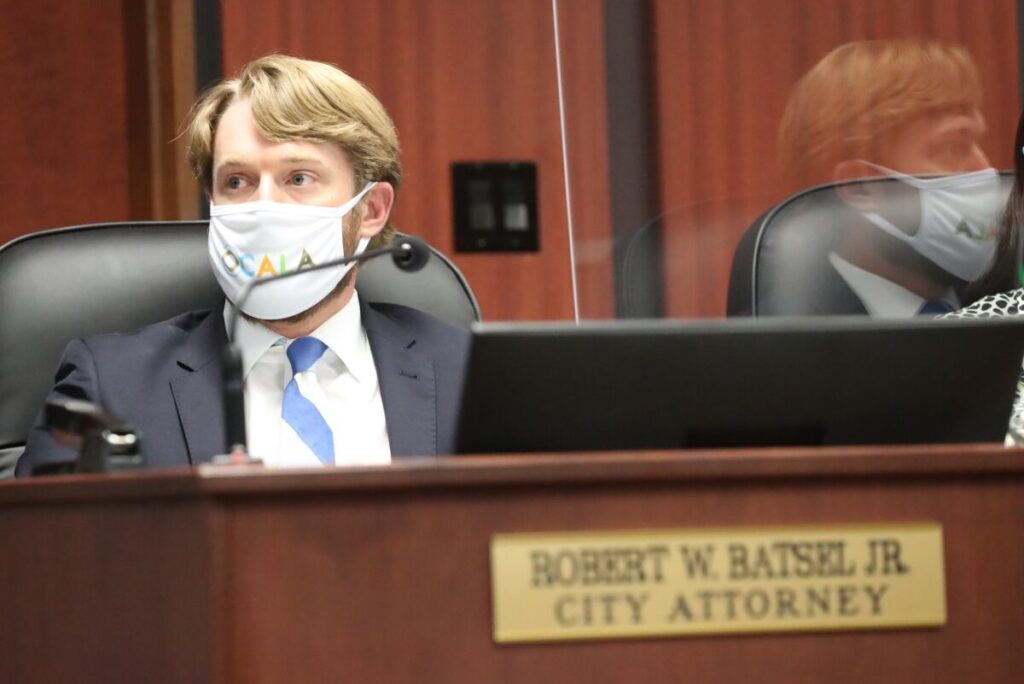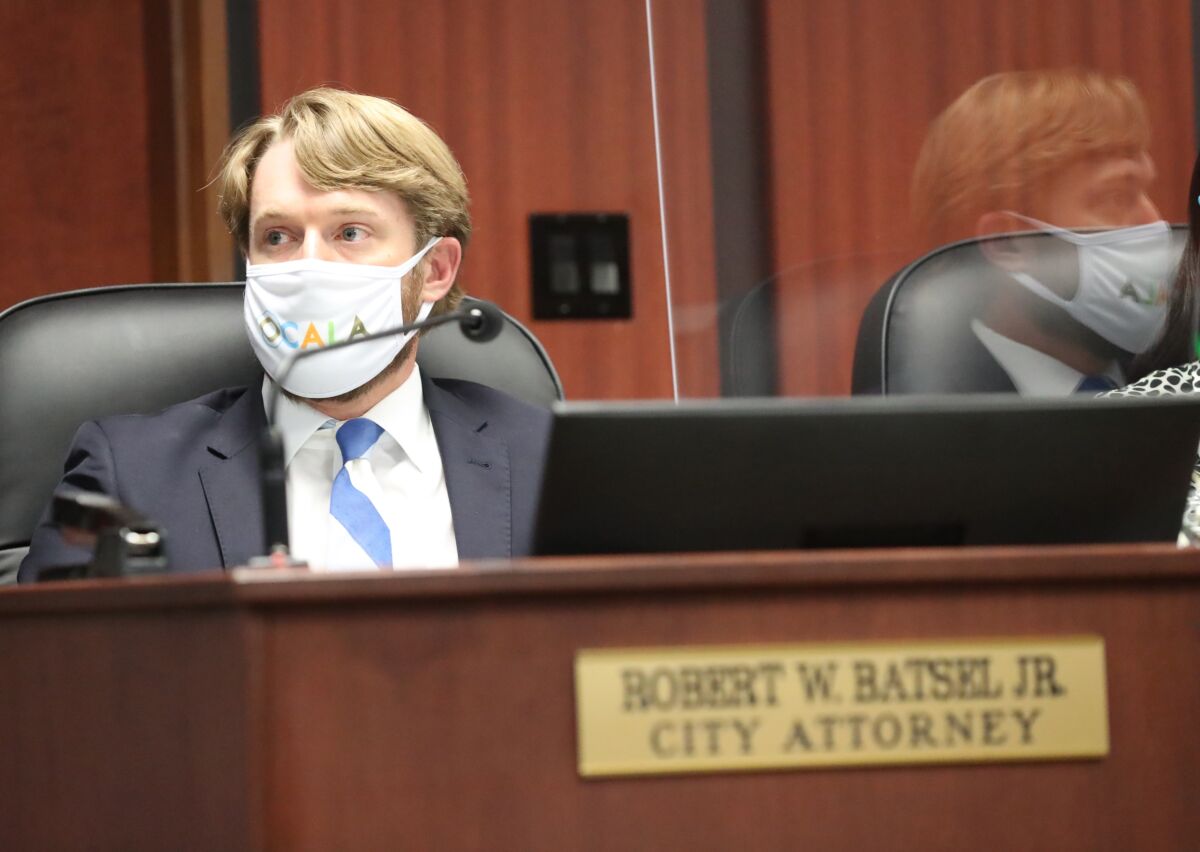City attorneys ask the city council to amend their contract

City Attorney Robert Batsel Jr. speaks during an Ocala City Council meeting at Ocala City Hall in Ocala, Fla. on Tuesday, Dec. 15, 2020. [Bruce Ackerman/Ocala Gazette] 2020.

City Attorney Robert Batsel Jr. speaks during an Ocala City Council meeting at Ocala City Hall in Ocala on Tuesday, Dec. 15, 2020. [Bruce Ackerman/Ocala Gazette]
The firm has represented the city for approximately 30 years.
The current contract from Oct. 2020 runs for two years as prescribed by the city’s charter. Click here to see the redline version of what is being changed.
According to the city charter, the city attorneys appointed through this contract play a pivotal role in the operation of the city as “chief legal advisor to the council, the manager, and all city departments, offices, and agencies.”
In this role, the city charter says the city attorneys must approve every contract the city enters for “form and legality.” The charter states that the city attorney’s review “shall be for the benefit of the city only and not any other person or entity. No contract shall be voided or is voidable because of a deficient form and legality review.”
The city charter also holds that the city attorneys “shall represent the city in all legal proceedings and shall perform any other duties prescribed by this charter or by ordinance,” with the option of “retaining additional counsel in specific actions or proceedings in its discretion.”
In addition to drafting ordinances, representing the city in legal battles, and reviewing city contracts, the firm’s monthly billing report indicates that it also actively works “with private partners on several Economic Incentive Program agreements to bring jobs, infrastructure expansion, and utility utilization to the city” as well as “working with Water Resources and Real Estate staff on several large projects concerning the city’s acquisition or disposition of property, drainage retention areas, utility easements, and potable water and sewer systems throughout the city and its extraterritorial service area.”
The contract the council will consider on Tuesday includes a conflict-of-interest clause that was first introduced by the firm in its current Oct. 2020 contract for legal services.
The conflict-of-interest clause said, in short, that the city attorney had advised the city, and the city is aware that the firm also represents “private persons and entities” that include “developers or contractors” who “have relationships with, or seek approvals from, [the] city.”
All three attorneys indicated that they did not recollect discussing this conflict-of-interest clause with the city council or city management prior to including it in their Oct. 2020 contract. However, Batsel Jr. told the Gazette that he would explain the conflict-of-interest clause when the new revised contract was presented.
Under rules established by the Florida Bar, attorneys must explain to clients if there is “a substantial risk that the representation of one or more clients will be materially limited by the lawyer’s responsibilities to another client, a former client or a third person, or by a personal interest of the lawyer.”
In the case of the Oct. 2020 contract that contained the city attorneys’ conflict-of-interest waiver, no specific clients were identified, only industries–development and contractors. The firm and the city indicate that there are no separate written conflict of interest agreements since the Oct. 2020 contract was entered.
In the case of navigating conflicts with developers and contractors, all the councilmen, city management, and city staff indicated they knew that Gooding has a long history of representing developers within the county. The majority reasoned that, when Gooding was dealing with developers for projects within the city, the city’s representation took priority–regardless of what he was doing for the same developer outside the city limits.
The potential for conflicts of interest does not seem to be relegated to only developers and contractors: but also, other entities who the firm represents as private clients but that do business with the city, since it must approve every contract the city enters.
In what seems to be an effort by the firm to avoid conflicts, the city attorneys shift approval of certain contracts based on who the point attorney is with private clients. For example, Batsel Jr. represents both the city and the Community Foundation of Ocala Marion County, a nonprofit. A review of the most recent contract between the nonprofit and the city had the contract approved by Gilligan instead of Batsel Jr.
Batsel Jr., Gooding, and Gilligan have all explained that their private clients are put on notice that when they sign their employment contracts, that should their interests become adverse with the city, the city’s representation would take priority over that of the private client.
Should the amended agreement before the city council be accepted, after Jan. 1st, the same attorneys would represent the city but be spread out over the two firms under one roof.
One firm would be made up of Jimmy Gooding, Rob Batsel Sr., and Rob Batsel Jr. The second firm would be made up of Patrick Gilligan, Dude Phelan, Chris Anderson, Gwen Williams, and Sydney Simmons.





